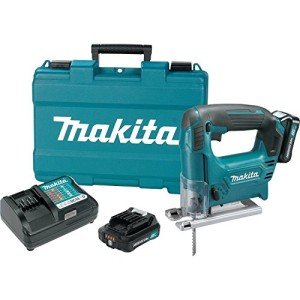What's The Current Job Market For Mitresaw Professionals?
페이지 정보

본문
Understanding the Mitre Saw: A Comprehensive Guide
When it concerns woodworking and building, precision is vital. One tool that stands out for its ability to provide accuracy in cutting angles is the Mitre Saw Hand saw. This flexible tool is a vital part of numerous artisans's toolkit, whether they are tackling small home tasks or big renovations. This blog site post aims to explore the mitre saw's performance, types, features, and how to pick the best one for your needs.

What is a Mitre Saw?
A mitre saw, likewise called a chop saw or drop saw, is a power tool utilized to make exact crosscuts and mitre cuts in woodworking. Mitre saws can cut details at various angles, that makes them extremely versatile for various tasks, such as framing, molding, and furniture-making.

How Does a Mitre Saw Work?
Mitre saws use a circular saw blade installed on a swinging arm. The user positions the workpiece against the fence and lowers the blade down onto the material at the preferred angle, resulting in a clean cut. The capability to lock the blade in place while cutting makes sure precision.
Kinds Of Mitre Saws
Mitre saws can be found in several versions, each designed for particular functions. Here are the most typical types:
| Type | Description | Best For |
|---|---|---|
| Requirement Mitre Saw | Basic model created for making straight cuts or mitre cuts. | General crosscutting jobs. |
| Compound Mitre Compound Saw Saw | Functions the ability to tilt the blade for bevel cuts in addition to mitre cuts. | Crown molding and angled cuts. |
| Dual Compound Mitre Saw | Combines the functions of a Compound Miter Saw mitre saw, permitting bevel cuts on both sides. | Complex angles and trim work. |
| Sliding Mitre Saw | Integrates a sliding system to increase cutting width and capability. | Wider materials such as lumber. |
| Digital Mitre Saw | Functions digital display screens for better precision in angle measurements. | Precision-sensitive tasks. |
Selecting the Right Mitre Saw
Picking the ideal mitre saw depends mostly on the kind of jobs you prepare to carry out. Here are some aspects to think about:
Type of Cuts Needed: Determine if you need only straight cuts, or if you need to make bevel cuts as well.
Size of Material: If you usually deal with larger pieces, a sliding mitre saw will offer more capacity.
Portability: If you need to transfer your saw often, a lightweight design would be required.
Power and Speed: Higher amperage indicates more powerful saws, however it's vital to stabilize power with maneuverability.
Price: Mitre saws are available in different rate varieties. Assess your spending plan while guaranteeing you do not compromise necessary functions.
Important Features of a Mitre Saw
When choosing a mitre saw, specific features can significantly boost the user experience and precision of cuts:
- Laser Guide: Projects a line onto the material, guaranteeing precise cuts.
- Bevel Adjustment: Allows fast and easy angle changes for bevel cuts.
- Dust Collection: Built-in features assist manage sawdust and improve visibility and cleanliness.
- Fencing System: A robust fence ensures accurate guidance while cutting.
- Weight and Portability: Lighter saws are easier to move, while heavier ones typically offer more stability.
Using a Mitre Saw Safely
Safety is critical when using any power tool, including mitre saws. Here are some vital safety pointers:
- Always wear appropriate personal protective devices (PPE), including safety glasses and hearing protection.
- Ensure the saw is safely fastened to a stable surface area to prevent movement throughout cutting.
- Keep hands at a safe distance from the blade and dissuade others from standing close.
- Routinely inspect blades for sharpness and replace them when required.
- Ensure the electrical connections are secure, and prevent cutting in wet conditions.
Frequently Asked Question About Mitre Saws
Q1: Can I use a mitre saw for cutting metal?
A: While some mitre saws can be adapted with unique blades for cutting metal, it's mostly created for wood. Constantly inspect the maker's specifications.
Q2: What blade size should I use for my mitre saw?
A: Mitre Saw Deals Common blade sizes are 10-inch and 12-inch. The size you need depends on the thickness of the material being cut.
Q3: How often should I alter the blade on my mitre saw?
A: Blade life varies based on use. Inspect the blade regularly and change it if it reveals signs of dullness or damage.
Q4: Can I make compound cuts with a standard mitre saw?
A: Mitresaw (Http://119.91.35.154:3000/Electric-Mitre-Saw5298) No, only compound and double compound mitre saws enable bevel cuts in addition to mitre cuts.
Q5: What is the difference between a sliding mitre saw and a compound mitre saw?
A: Sliding mitre saws have a slide mechanism that extends the cutting capability, while compound mitre saws can only tilt for angled cuts.
The mitre saw is an important tool for anybody seeking to enhance their woodworking projects with precision and ease. With different types, features, and safety preventative measures to consider, understanding this tool empowers users to make educated decisions tailored to their specific needs. Whether you are a seasoned professional or simply beginning, a mitre saw can substantially raise your workmanship. By making the effort to select the right design and practicing safety steps, you can guarantee a successful woodworking journey.
- 이전글The Most Pervasive Issues With Stationary Bike 25.11.01
- 다음글Why Is This Nescafe Coffee Maker So Beneficial? During COVID-19 25.11.01
댓글목록
등록된 댓글이 없습니다.

